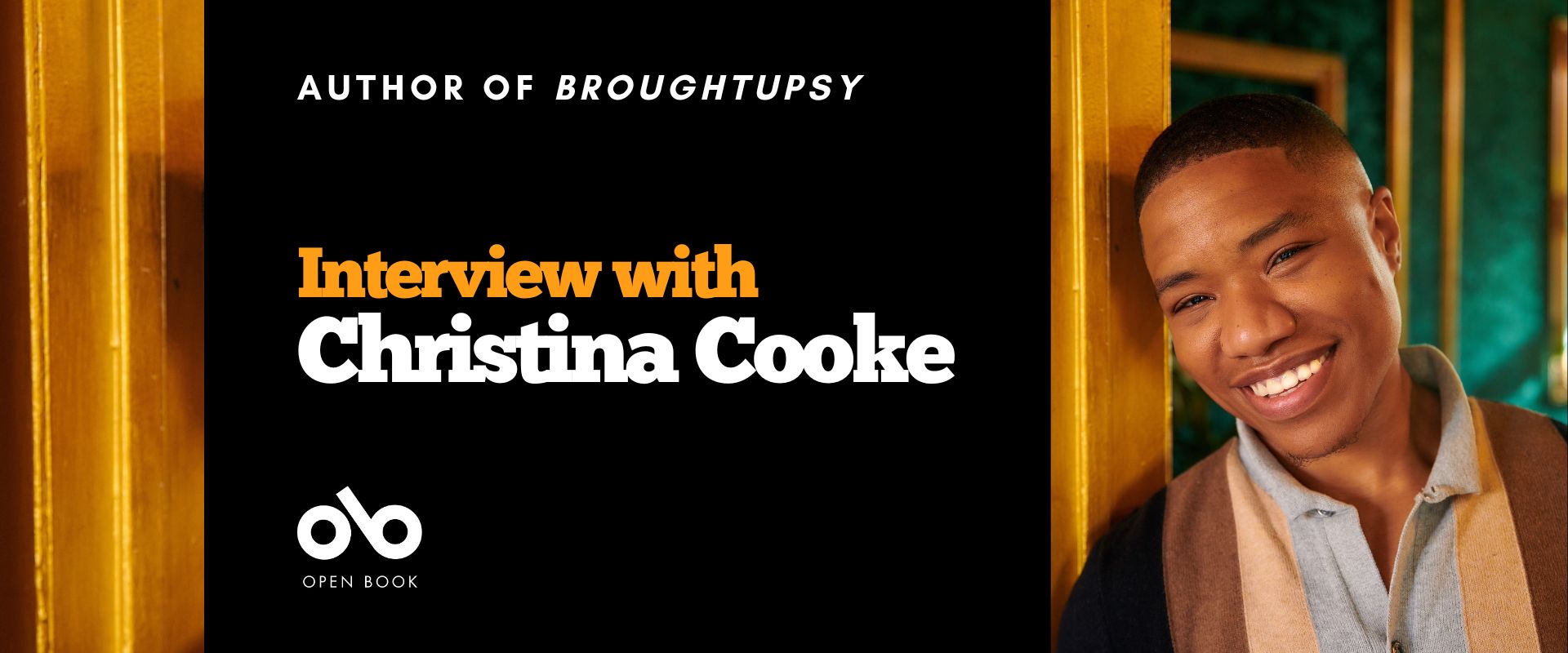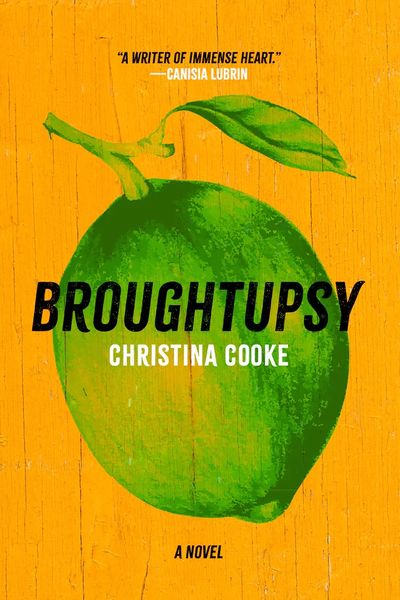Christina Cooke Explores the Power of Family and Home in Broughtupsy
Through the complicated happenings of our lives, people are often faced with challenges that make them consider how far they are willing to go for family, and to preserve a sense of home.
In Christina Cooke's new novel, Broughtupsy (House of Anansi Press), themes of family, home, and belonging abound. She tells the story of Akúa, who returns to Jamaica after the death of her younger brother, and tries to reconnect with her estranged sister, Tamika. They visit places from their childhood to spread their brothers ashes, feeling all the more different and distant even against their most sincere efforts to bond.
All of this takes a turn when Akúa meets a stripper named Jayda, who exposes Akúa to a side of Kingston that she hasn't known before, bringing her sexuality and identity to the forefront. Being gay in this place, in a religious family, comes with all manner of complexities that the protagonist must face head on. As the trip nears a dangerous, intense conclusion, Akúa reaches for a thread of hope and peace in the midst of it all.
It's a powerful debut from an author who has already been lauded for her short fiction, and whose talent has been recognized by such literary luminaries as the mighty Canisia Lubrin. We've got some wonderful insight into the novel from the author, presented as part of the It's a Long Story interview series.
Open Book:
Do you remember how you first started this novel or the very first bit of writing you did for it?
Christina Cooke:
Broughtupsy actually started out as a short story collection during my first Master’s at the University of New Brunswick. Why short stories? Because back then, the idea of writing something as long as a novel terrified me to my bones. Short stories seemed much more manageable as a 20-something writing seriously for the first time – little bite-sized bits of narrative I could string together to make a satisfying whole. I remember that Sue Sinclair was the writer-in-residence in the semester when I started what would later become Broughtupsy, and she was the first to say to me, “What you’ve imagined here is too large for a series of short pieces. I think you’re writing a novel, whether you like it or not.”
Well, Sue, you were right. I didn’t want to hear it at the time, but you were absolutely right.
OB:
Did the ending of your novel change at all through your drafts? If so, how?
Your CanLit News
Subscribe to Open Book’s newsletter to get local book events, literary content, writing tips, and more in your inbox
CC:
I often say I can’t start a story until I know how it’s all going to end – but if I’m honest, the way my novel ends now is not at all what I thought I was writing towards.
The current closing scene of Broughtupsy was originally meant to be just a tender moment on the journey towards the true ending – a pitstop, if you will, before the grandiose conclusion I imagined in my head. But once I had a full draft and I could see my project in its entirety, I quickly realized just how wrong I was. Tender was absolutely the best place to close, with its poignancy and capaciousness and delicate exuberance for what could be.
And as for the original ending? Overcomplicated, overwrought, and just plain bad. But still, even so, I’m grateful to that original siren call for pulling me through.
OB:
If you had to describe your book in one sentence, what would you say?
CC:
If you’re a fan of immersive, heartrending, and emotionally intense stories – in other words, a reading experience that feels a bit like drinking juice concentrate straight from the bottle – then Broughtupsy is the novel for you.
OB:
Did you celebrate finishing your final draft or any other milestones during the writing process? If so, how?
CC:
This novel took me about a decade to write, and another three years to steward towards publication – so you better believe I celebrated EVERY DANG WIN.
My favorite celebration was when I signed with my first agent and my then-girlfriend, now wife, made a handwritten poster that she hung from the ceiling just inside our apartment’s front door. It was the first thing I saw when I came home that night. I remember laughing then crying as I looked up at her lopsided CONGRATULATIONS!!!!!! surrounded by cute stickers she picked up from the dollar store. I think she might’ve even hopped out from behind the staircase and done a little dance.
Some people dream of seeing their name in bright lights. For me, that was my “bright lights” moment. Nothing will ever top seeing how proud and happy she was to see me win.
OB:
Who did you dedicate your novel to, and why?
CC:
This might sound cheesy, but I dedicated my novel to my mother – because if it weren’t for her clever busywork tactic of sitting me in the living room with stacks upon stacks of books during school breaks, I never would’ve discovered my innate love of literature.
So thanks, Mummy, for overloading me with more books than any child could ever read, no matter how voracious their imagination. You thought you were just keeping me focused and quiet. You were actually exposing me to the bright wonders of the world, and giving me the language to better explore myself.
OB:
What, if anything, did you learn from writing this novel?
CC:
That novel-writing is unbelievably, indescribably difficult and those of us who compulsively return to this form are absolute suckers for pain.
That probably wasn’t the answer you were expecting, but it’s true! Novel-writing is just as surprising and exhilarating as it is excruciating and rife with ache. I applaud each and every one of us who willingly submit to this wily adventure in search of what is searing and beautiful and true.
________________________________________________
Christina Cooke's writing has previously appeared in PRISM international, The Caribbean Writer, Prairie Schooner, Epiphany: A Literary Journal, and elsewhere. A MacDowell Fellow, Writers' Trust M&S Journey Prize winner, and 2022 Glenna Luschei Prairie Schooner Award winner, she holds an MA from the University of New Brunswick and an MFA from the Iowa Writers’ Workshop. Born in Jamaica, Christina is now a Canadian citizen who lives and writes in New York City.






